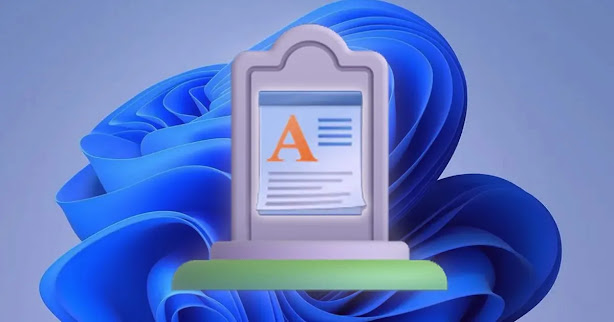Farewell WordPad: Microsoft's Retirement of a 30-Year-Old Rich Text Editor
Saying goodbye to WordPad: Microsoft's retirement of the trusted 30-year-old rich text editor marks an era's end.
Microsoft's decision to retire WordPad, the venerable rich text editor that has been a part of the Windows operating system for nearly three decades, marks the end of an era in computing. In this comprehensive article, we delve deeper into the history of WordPad, the reasons behind its retirement, and what this means for users and the broader tech landscape.
The Evolution of WordPad
A Tool of Simplicity
WordPad made its debut in 1989 with the release of Windows 3.0. Positioned as a lightweight word processing application, it bridged the gap between the basic Notepad and the more advanced Microsoft Word. Offering essential formatting options and a user-friendly interface, WordPad quickly became a favorite among Windows users for tasks like note-taking and basic document editing.
Adapting to Changing Times
Over the years, WordPad received incremental updates, with each new version incorporating improvements in functionality and design. While it never aimed to compete with the full-featured Microsoft Word, it remained a reliable companion for everyday tasks. Its lightweight nature made it a quick and efficient tool for users who didn't require the extensive features of a more complex word processor.
The Retirement Decision
An Era Draws to a Close
In 2023, Microsoft announced that WordPad would be officially retired. This decision reflects the company's shift toward streamlining its software offerings and focusing on more robust productivity tools like Microsoft 365. With the advent of free online office suites and the continued development of Microsoft Word, WordPad's relevance had gradually diminished. While it remained a part of Windows, it was no longer a central feature in the computing landscape.
The Implications for Users
No More Updates: One significant implication of WordPad's retirement is that it will no longer receive updates or security patches. As a result, users who continue to rely on this software may face compatibility and security issues in the future.
Alternatives Abound: Fortunately, users have a plethora of alternatives to choose from. Free and open-source word processors like LibreOffice Writer and Google Docs offer similar simplicity and compatibility with common document formats. Microsoft itself offers the more feature-rich Microsoft Word, which has become a standard in the professional world.
The Nostalgia Factor
Fond Memories
For many longtime Windows users, WordPad holds a special place in their computing journey. Its retirement sparks nostalgia and reminiscences of simpler times in the digital world. It was often the first word processor that many individuals encountered, introducing them to the concept of document creation and formatting.
Moving Forward
While WordPad may be saying goodbye, Microsoft's commitment to innovation and evolving technology remains unwavering. Users can expect more feature-rich and collaborative tools to emerge as Microsoft focuses on its modern productivity suite. The retirement of WordPad is a reflection of Microsoft's dedication to providing users with the best tools for the digital age.
Conclusion
As WordPad bids farewell after nearly 30 years of service, it leaves behind a legacy of simplicity and accessibility. While its retirement may evoke nostalgia, it also reflects the ever-evolving landscape of technology. Users can look forward to embracing modern and feature-rich alternatives as they continue their digital journeys. Microsoft's decision to retire WordPad is a reminder that in the world of technology, change is inevitable, and innovation propels us toward new horizons.
The retirement of WordPad marks a significant moment in the history of computing, reminding us that even the most iconic software tools must evolve or make way for new innovations. Microsoft's commitment to providing users with cutting-edge solutions ensures that the digital landscape will continue to change and adapt to meet the needs of users around the world.






No comments